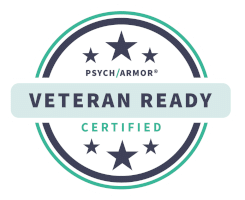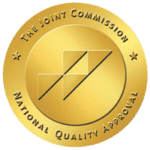March 30th is World Bipolar Day, an important day dedicated to raising awareness and eliminating the stigma surrounding an often-misunderstood condition. One of the most common misconceptions is that
bipolar disorder is simply a sudden shift in mood or frustration levels. Sometimes people describe their mood swings as “feeling bipolar.” In reality, though, bipolar disorder is much more intense and challenging than that.
Additionally, some people with bipolar disorder also struggle with alcohol or substance use disorder. The presence of both conditions, referred to as a co-occurring disorder, makes an already difficult diagnosis even more challenging. Treating co-occurring bipolar disorder and substance use disorder is complicated but possible.
World Bipolar Day provides an opportunity to learn more about bipolar disorder. It’s also a great time to consider the impact of co-occurring substance use disorders. Understanding these conditions is the first step toward ensuring that every individual struggling with bipolar disorder, substance use disorder, and co-occurring disorders
receives the help they need.
What is Bipolar Disorder?
Bipolar disorder is a serious brain disorder that causes unusual shifts in mood, energy, and activity levels. These shifts are much more intense than the usual fluctuations that every person experiences from time to time. It’s not just feeling frustrated, excited, or sad. The shifts caused by bipolar disorder range from moderately inconvenient to severely debilitating.
Bipolar disorder is characterized by two distinct emotional states: mania and depression.
Manic episodes include inflated feelings of excitement, self-confidence, energy, and euphoria. Depressive episodes involve an overwhelming sense of sadness, hopelessness, lethargy, and apathy. Some people with bipolar disorder also experience a mixed state where they have features of both mania and depression.
Also, the Diagnostic and Statistical Manual of Mental Disorders splits manic episodes into two types: mania and hypomania. Mania lasts for a week or more and causes significant social or occupational impairment and may result in hospitalization. Hypomania lasts at least 4 days and is noticeable but less severe, and may not impair functioning.
The DSM separates bipolar disorder into
different categories organized by severity and frequency of episodes. These include:
- Bipolar I: Manic episodes that last at least 7 days and may require hospital care, depressive episodes that last at least 2 weeks, and occasional mixed episodes
- Bipolar II: Hypomanic episodes that last at least 4 days, depressive episodes that last at least two weeks, and possible mixed episodes
- Cyclothymic Disorder: Periods of hypomanic symptoms and depressive symptoms that last at least 2 years but don’t meet requirements for a bipolar I or II diagnosis
Bipolar disorder typically presents during the late teen or early adult years. The severity of symptoms may fluctuate over time but individuals with bipolar disorder typically need
lifelong treatment.
Prevalence of Substance Use Disorder Among Bipolar Disorder
Substance use disorders are prevalent among individuals with bipolar disorder. Research shows that the lifetime co-occurrence of SUD and bipolar disorder ranges between 21.7% and 59%. These alarming rates of co-occurring SUD or AUD and bipolar disorder are second only to those with antisocial personality disorder. Further studies reveal more detailed prevalence rates for different types of bipolar disorder and substance use disorders.
58% of people with bipolar I experience co-occurring alcohol use disorder during some point in their life, while 38% experience substance use disorder. Those with bipolar II have somewhat lower rates of co-occurring disorders, with 39% experiencing AUD and 21% experiencing SUD.
Alcohol is most commonly abused among those with bipolar disorder, with a lifetime prevalence of around 42%. Cannabis use disorder occurs in about 20% of cases. Rates of tobacco use are also much higher in those with co-occurring disorders, around
60 to 80% compared to 15% of the general population.
The Relationship Between Substance Use Disorder and Bipolar Disorder
What causes someone to experience co-occurring disorders? Does bipolar disorder or substance use disorder come first? Not everyone has the same experience. Some people first experience bipolar disorder and then initiate their substance use. However, others start by using substances which often leads to the
earlier onset of their bipolar disorder.
So are co-occurring disorders a product of genetics or environment? Again, this depends on the individual. The genetic component of co-occurring disorders is important to recognize. Research suggests that bipolar disorder and alcohol use disorder may be genetically related. Studies show that between 47% and 57% of genetic variance predisposing a person to bipolar disorder is connected to alcohol use disorder as well.
However, environmental factors are also at play. For example, researchers propose the idea of
addiction vulnerability among people with psychiatric disorders, especially bipolar disorder. They suggest that common bipolar disorder traits, such as impulsivity, poor coping strategies, and extreme pleasure-seeking behaviors during manic or hypomanic phases, put people more at risk of turning to substances.
The longer a co-occurring bipolar disorder and substance use disorder is left untreated, the worse symptoms become. If someone shows signs of experiencing a co-occurring disorder they should seek and receive treatment as soon as possible.
How to Treat Bipolar Disorder and Substance Use Disorder
Thankfully, treatment for co-occurring bipolar disorder and substance use disorder is available. However, proper diagnosis is the first hurdle to receiving help. Symptoms of alcohol and drug use or withdrawal are similar to symptoms of bipolar disorder. This makes it challenging for clinicians to differentiate the two.
For example, behaviors exhibited by stimulant users resemble those present during a manic episode. On the other hand, symptoms of alcohol or opioid use are similar to those experienced during a
depressive episode. Additionally, the chaotic mood swings during alcohol or drug withdrawal may present as a mixed episode.
Bipolar disorder can only be properly diagnosed following the elimination of all substances and maintenance of sobriety. After they’re separated from substances for some time, the true nature of their symptoms and possible disorders becomes more clear.
Even then, while proper diagnosis is the first challenge, providing effective treatment is equally challenging. Individuals with co-occurring disorders benefit most from an approach that involves both psychosocial and pharmacological interventions. Relying on only one or two treatment methods doesn’t address the intricate and complicated connections between the two conditions.
The final challenge is ensuring that people follow through on their treatment programs. One of the most important aspects of effective care is committing to the program through its entirety. Research shows that those with co-occurring disorders are at a
greater risk of not adhering to treatment protocol. Ensuring commitment to treatment from people with co-occurring disorders increases the likelihood that it will be effective.
Finding Help For Your Co-Occurring Disorder
Learning to manage your co-occurring disorder doesn’t have to be an impossible feat when you have the right kind of support. Pasadena Villa is a psychiatric treatment network offering a range of services to those living with mental health disorders. We are dedicated to providing every individual with a clear path toward a happier, healthier, and more fulfilling life.
If you’re struggling with bipolar disorder and substance use disorder, we’re here to help. Pasadena Villa offers
various levels of care to meet your needs, whatever they may be. You’ll find that our unparalleled commitment to providing compassionate and comprehensive care will start you on your journey to wellness.
To learn more about the programs we offer,
please reach out to us today. Our admissions team is waiting for you to call us or submit an online form and is ready to connect you with the type of treatment that’s right for you. You never need to handle your diagnosis alone again!





